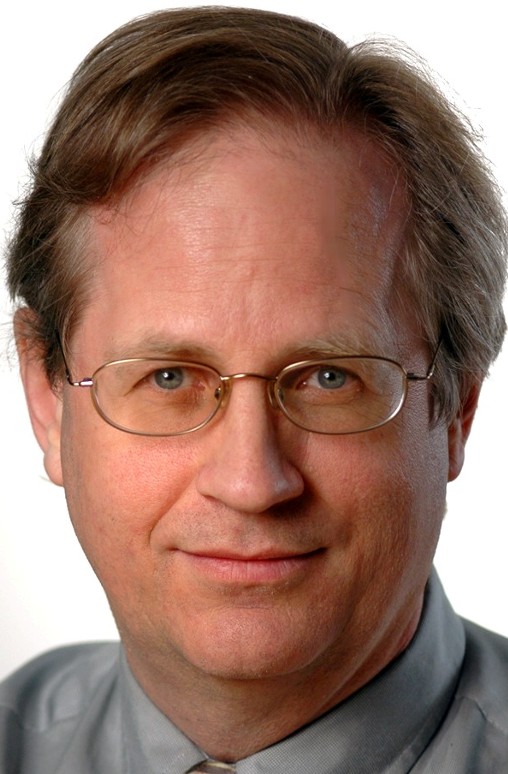About Alan Boyle
"When I was young, Pluto was still a planet."
... And when I'm old, who knows? Pluto may be a planet again.
As science editor for the msnbc.com Web site, I've been covering the ins and outs of planethood since 1999 or so. The beat really heated up in 2004 with Caltech astronomer Mike Brown's discovery of Sedna, a far-ranging ice world that is still swathed in mystery. Like Brown, I had every expectation that someday, someone would find something bigger than Pluto, stirring a fresh debate over - and appreciation of - the things we've historically called planets.
When a panel convened by the International Astronomical Union came up with a concept that would boost the planet count to 12, and most likely more, I was intrigued. The intrigue grew even greater when that concept was thrown out during the IAU's tumultuous meetings in 2006, and the planet count was reduced to eight by fiat. At first, I assumed that was the end of the story. Of course, both sides had valid points to make, but when the IAU promulgated its "Eight Is Enough" decision, I figured that the astronomy world's "tribe has spoken." And I wrote as much in my Weblog for msnbc.com.
Then the dwarf planet's scientific defenders - led by "Pluto Underground" leader Alan Stern - let me have it. They laid out their case for Pluto forcefully and plainly. In the years that followed, I have taken care to include both sides in the continuing debate over dwarf planets and the other denizens of our solar system. Another thing I took care to observe was just how interested regular folks have been in the debate. There is definitely something about this little ice world that continues struck a chord with people, especially young people. And it's not just the link to the orange Disney dog.
I lay out my own perspective on the debate, as well as my take on Pluto's peculiar appeal, in The Case for Pluto.
If you pick up the book, you'll learn that I was born and raised in Iowa, the Midwestern state that provides the setting for the first chapter. I grew up on the family farm (where we had cows, pigs, sheep, chickens and most of the other animals from the "Old MacDonald" song); went to Aquin High in nearby Cascade, Iowa (Class of '72); graduated from Loras College in Dubuque, Iowa, with a major in English literature, writing and philosophy (1976); and then went on to study journalism at Columbia University in New York. After getting my master's degree (M.S.J., Columbia 1977), I took a job on the copy desk at The Cincinnati Post (now a casualty of the newspaper industry's downsizing). A year later, in 1978, I lit out for the great Northwest and worked on the copy desk, city desk and features desk at The Spokesman-Review in Spokane, Wash. In 1984 I moved over to the Seattle Post-Intelligencer, where I eventually became the paper's foreign desk editor.
It was while I was at the P-I that I took an interest in online media. In 1994, I helped organize the first "New Media for a New World" conference introducing ex-Soviet journalists to online tools in Moscow. I represented the World Association of Newspapers at a UNESCO conference for Pacific Rim journalists in India in 1995. By that time I was convinced that this thing called the Internet would eventually make a huge difference in the way that people got their news. So when msnbc.com put out the word that it was hiring journalists for its debut in 1996, I was among the first in line.
At msnbc.com, I started out covering the top stories of the day, ranging from the aftermath of the Soviet collapse to the Flight 800 air tragedy and investigation. But by 1997, I was regularly writing about space-related stories such as the Mars Pathfinder landing and the Mir space station crisis - and that's how I ended up making space and science a full-time beat.
The beat's been very, very good to me: I was fortunate enough to receive the AAAS Science Journalism Award as well as the NASW's Science in Society Award in 2002 for a series of stories about genetic genealogy. In 2003 I won a share of the first CMU Cybersecurity Awards, in 2005 I shared a Pirelli Relativity Challenge award for msnbc.com's coverage of the Einstein centenary, in 2006 I was given the Space Frontier Foundation's Space Journalism Award for my coverage of the new space race, in 2007 I received the June Anderson Almquist Award for distinguished service from the Society of Professional Journalists, and in 2008 I was honored with the first National Academies Communication Award given for online news. I'm listed in the Marquis Who's Who in America and currently serve on the board of the Council for the Advancement of Science Writing.
Am I a hard-core Plutophile? I wouldn't go that far. But I do think it's important to get the other side of the Pluto story out there. That story is not just about one little ice world. Pluto is what it is, whether we call it a planet or an overgrown snowball. The story is really about how we and our ancestors have looked at worlds beyond Earth, and how our descendants will no doubt look at a wider array of worlds through wiser eyes. If The Case for Pluto opens your eyes even a little bit wider to all those wonders, I'll have won my case.
-
Alan Boyle,
September 2009
